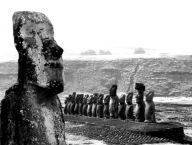Ideas in depth
The traditional view of leadership is that particular people have inherent qualities which set them apart from others and make them natural leaders. However, there is no evidence of such qualities. Indeed, the qualities which make for successful leadership vary from situation to situation. This has led to ‘contingency’ models that try to specify what qualities lead to success in different situations. Such models have not proved much more successful.
This is because traditional approaches forget that all leaders are leaders of some group: a nation, of a political party, of a church or whatever. And what binds followers to a leader is the fact that both are bound together within the group. That is, we see someone as a leader to the extent that they represent the group that we identify with.
There are three important implications of this position:
First, leadership is only possible where a set of people share a common group identity. If there is no ‘we’ and no shared norms and values that ‘we’ believe in, then there is nothing for a would-be leader to represent.
Second, the most effective leader will be the person who is most typical of the group (the person whose prototypicality is highest) and hence able to best represent the shared group identity.
Third, leaders will actively shape the group identity in order to make themselves and their plans seem representative. That is, successful leaders need to be skilled ‘entrepreneurs of identity’.
These are ideas that we explore in greater depth in our recent book The New Psychology of Leadership. As well as discussing leadership in the BBC Prison Study, this presents a wealth of other data from experimental, historical and field settings, and integrates this within the framework of a new analysis of leadership informed by social identity theorizing.
Further reading
- Haslam, S. A., Reicher, S. D. & Platow, M. J. (2011). The new psychology of leadership: Identity, influence and power. New York: Psychology Press.
- van Knippenberg, D., & Hogg, M. A. (Eds.) (2003). Leadership and power: Identity processes in groups and organizations. London: Sage.

